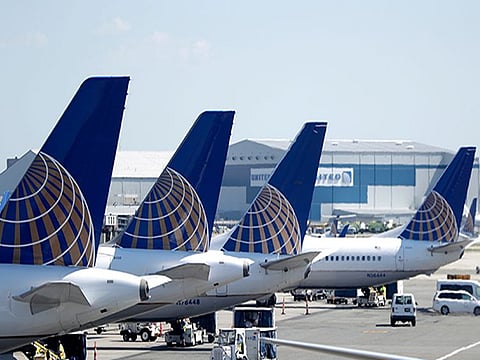Global economy needs a quickfix for virus
Even temporary measures could go some way towards reducing the sense of helplessness

Despite the fragile global economic growth last year, there was some optimism of a possible improvement, especially after the two largest economies agreed to settle their trade disputes and which averted what would have been a devastating tariff war.
Yet, everything drastically changed in December after the outbreak of the coronavirus in China, and which later spread to the rest of the world. This requires a comprehensive revision of all previous economic forecasts for the current year, which is being done by multilateral organizations and major economic, financial and credit institutions.
The global economic situation before coronavirus are not the same as they are after the outbreak. The global economy has shrunk in a short period, which prompted Moody’s to say, “Our previous assumption that the virus will be contained in China was very optimistic... it can now be said that the epidemic will lead to a global recession.”
Warning signs
Signs of this are becoming obvious by the day as evidenced by quick developments across many indicators. The world’s financial markets lost $5 trillion in just one week, and the Dow Jones and the Nasdaq indices fell by 14 per cent and 12 per cent, respectively. Also, the FTSE dropped 13 per cent and the activities of listed companies will be affected throughout the year.
Certainly, part of this sharp decline was caused by speculation, but investor fears and a need for safe alternatives had a significant role to play. The decrease in sales cost Amazon and Apple $105 billion and $173 billion in market value as the latter’s factories in China halted operations, causing further dips in shipments.
As for the aviation and air transport sector, it was obvious it was in a nosedive, affecting most airports in the world. In China, flights declined by 87 per cent, to only 2,000 daily flights, including passenger and airfreight, which will affect the economies of many countries in Asia.
Wiped out for now
The tourism sector, which was already suffering, is among the most affected by coronavirus, considering the restrictions imposed on maritime and land transport by most countries. It is obvious that the presence of travellers has reached almost zero in some tourist hotspots. Airlines could incur more than $25 billion in revenue losses, which will reduce their ability to meet obligations and event bankrupt some of them, especially those which already suffer financial burden.
The oil sector is also among those getting hit. A Brent barrel has seen a decline in price of 23 per cent in just two weeks to $50, a setback for oil-based economies that barely managed to recover last year after three years of price deterioration.
These fluctuations provided an opportunity for speculators, particularly those seeking safe havens such as gold, which shot from $1,460 an ounce to $1,665, before dropping to $1,585 by the end of last week. This would have fetched profits for major speculators, and incurred losses to others.
It is a fact that these repercussions are difficult to deal with, especially as the virus continues to spread rapidly. It will lead to further restrictions and greater economic deterioration.
However, temporary financial restructuring, at least until things stabilize, may contribute to the effective handling of repercussions. The stock markets, however, seem to have regained an upward trend this week, meaning there is room for more fluctuations ahead.
- Mohammed Al Asoomi is a specialist on the Gulf's social and economic issues.







